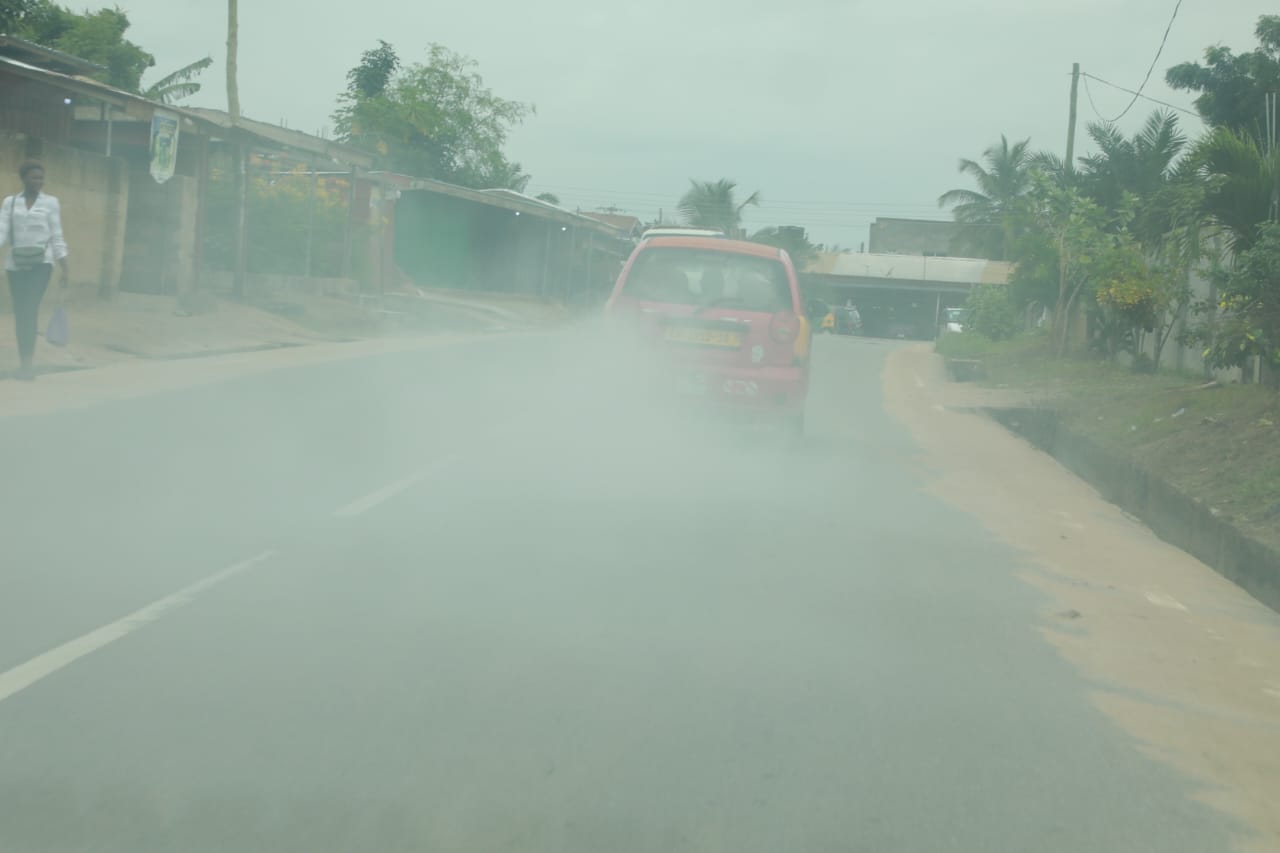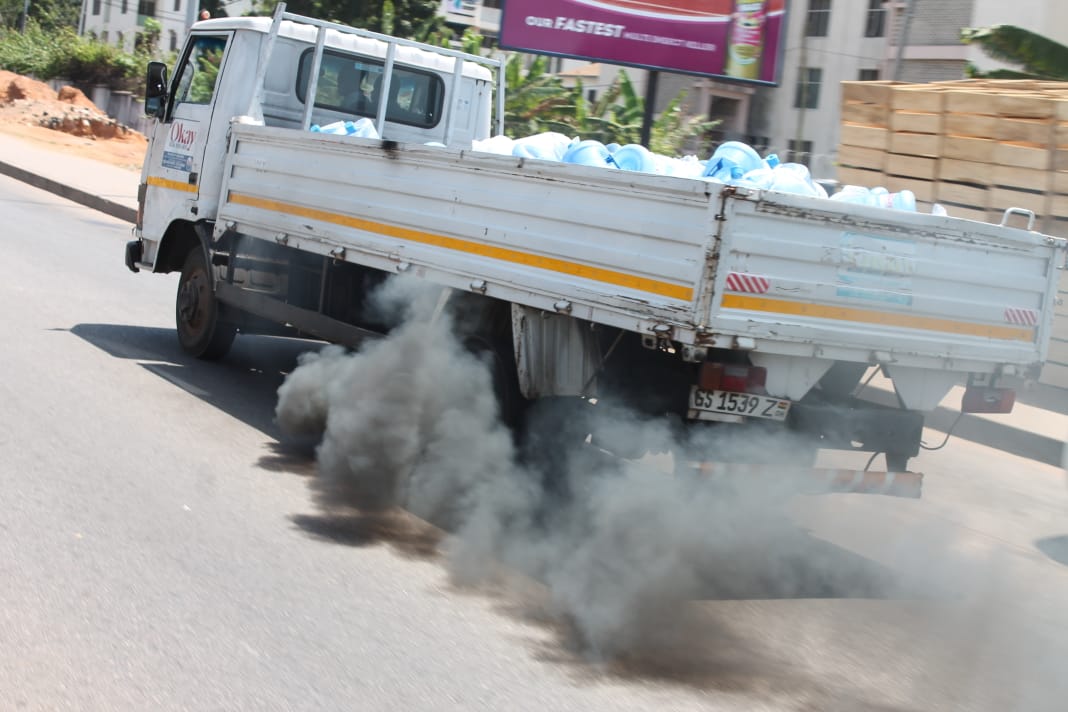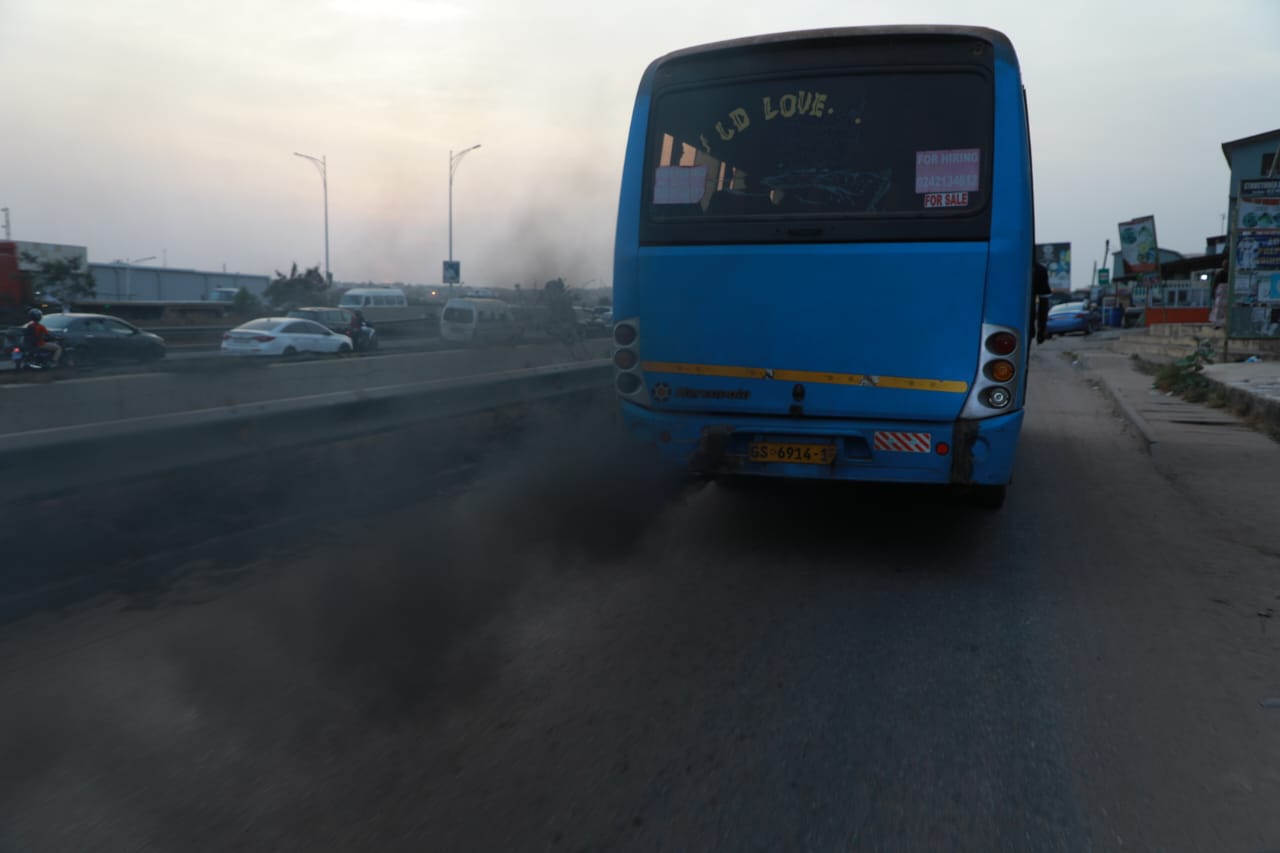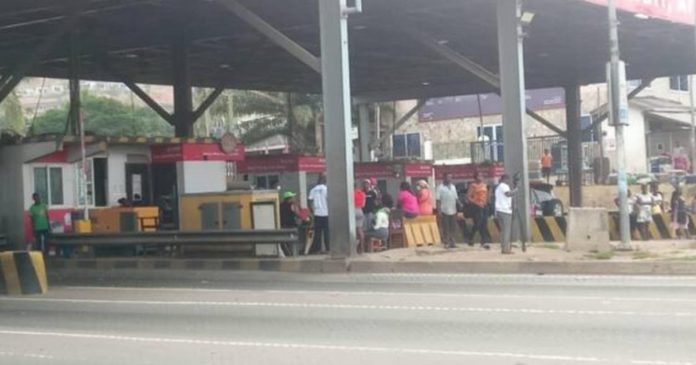As air pollution continues to worsen in Ghana, road toll collectors have been identified as the most vulnerable.
They spend long hours on the road and inhale toxic emissions from vehicles, leaving many with serious health problems.

This has come to light amidst calls for the government to reintroduce road toll collection which was ceased in 2021, rendering about 700 workers jobless.
In an interview with Adom News, some former toll workers appealed to government to put in place the necessary measures to safeguard their health.
40-year-old Kingsford Dawun is a physically challenged person, who is a former tollbooth worker said the poorly-ventilated toll booth he sat on the Amasaman-Nsawam road was always filled with exhaust fumes.

As someone who was delighted to be recruited in 2020 after years of job hunting, his joy was cut short because the tollbooths were closed a year later while his health suffered.
“Most of the time I cough and feel heavy pains around my chest and lungs because of the emissions. So when we lost our jobs, I decided to seek proper medical attention but was not entirely surprised when the doctors at the Nsawam Government Hospital told me I had a chronic obstructive pulmonary disease,” he said.
Another former tollbooth worker, Emmanuel Abona also disclosed he participated in a health screening at Amasaman where signs of smoke damage to his chest and lungs was detected.
Upon further tests and medical examination, Emmanuel was diagnosed with a lung disease.
The doctor told me I have lung disease. My Lungs are darkened full of smoke and he asked me if I was a smoker. I told him I work at the toll booth.
Emmanuel and Kingsford’s predicaments are typical of former tollbooth workers nationwide, the Ghana Toll Workers Union secretary, Duncan Edward said, citing himself.
Mr Duncan is therefore advocating for compensation or health packages for tollbooth workers should the government reintroduce it as well as benefits for former workers.
Almost 40 percent of Ghana’s air pollution is caused by transport emissions, mostly from vehicles.
These emissions contain extremely small particles that can travel through the blood stream to cause damage to vital organs such as the heart and lungs.

Confirming this, the Chief Executive Officer of the Korle Bu Teaching, Dr. Oware Ampomah said vehicular fumes contain dangerous substances and gases which can kill.
He said toll workers in Ghana are at greater risk of diseases such as asthma and lung cancer.
“The fumes can kill if you inhale it continuously. It can give you lung and heart disease.”
Evidence from several countries, including China and the United States has shown the dangers to toll workers.
Paediatric Pulmonologist and a Senior Lecturer at the Kwame Nkrumah University of Science and Technology, Dr. Sandra Kwarteng Owusu said if government indeed plans to re-open the toll booths workers will need protection.
“I think if the ignition of vehicles is constantly on and there are people at the toll booths daily, weekly, monthly any protective clothing then potentially it could be equally harmful directly as direct smoking will be,” she said.
A Public Health Expert at the University of Ghana, Dr. Reginald Quansah noted that, phyically challenged persons are particularly vulnerable and are better off unemployed than working in poorly-ventilated booths without protection.
“Disabled are vulnerable to smoke it is because a wheelchair’s height places their airways closer to vehicle emissions. The smoke can kill them easily,” he bemoaned.
Some experts and opinion leaders like the MP for Mpraeso, Davis Ansah Opoku have urged the government to adopt technologies that remove the need for workers in toll booths.
Regional Manager of the Ghana Highway Authority, Emmanuel Odai says government is putting measures in place to build new automated booths with few manual booths.
“We wish we stop toll workers going back to sit at the toll booths so that we have electronic booths but when we do that people will be unemployed. When we are done constructing new tool booths we will provide them nose masks,” he said.
On long term measures, former CEO of the Environment Protection Agency (EPA), Dr Henry Kwabena Kokofu has proposed the re-introduction of vehicle emissions testing.
This, he believes would ensure that vehicles that emit toxic fumes above a certain maximum are not allowed to ply the roads until their engines have been fixed to improve air quality.
“We are going to make sure drivers whose car engines are not fit for the road will be asked to go and repair engines and return to the road, failure to do so will attract punishment,” he cautioned
This report was produced in collaboration with New Narratives with funding from the Clean Air Fund.
ALSO READ:

